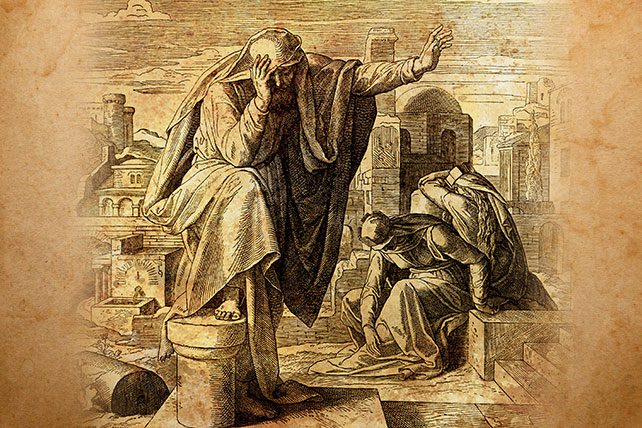The Exile of the Kingdom of Judah
The exile was a pivotal moment in Jewish history (see 1 Chronicles 9:1), a tangible result of years of disobedience, and a turning point that would define the identity and faith of the Jewish people for generations.
The Babylonian Captivity
In 586 B.C., the Babylonians, led by King Nebuchadnezzar, laid siege to Jerusalem, culminating in the city’s destruction and the Temple’s desecration. The elite, craftsmen, and many of the citizens were taken into captivity in Babylon, marking the start of a 70-year exile. This period was a time of reflection, lamentation, and eventually, a rekindling of faith among the exiles.
Prophetic Fulfillment and Divine Judgment
The exile was not an unforeseen disaster; it was a fulfillment of prophetic warnings given through Jeremiah and other prophets. It served as divine judgment for the people’s consistent disobedience and as a purifying process, intended to bring them back to a right relationship with God.
The Message of Hope and Restoration
Despite the overarching theme of judgment, Jeremiah’s message was not without hope. Embedded within the warnings were promises of restoration, renewal, and a new covenant.
RELATED: Embrace Each Day With Hope: His Mercies Are New Every Morning
Jeremiah prophesied that the exile would last 70 years, after which God would bring His people back to their land. This promise was a beacon of hope for the exiles, assuring them that God’s discipline was not permanent but aimed at their ultimate restoration and reconciliation.
Perhaps the most profound aspect of Jeremiah’s message was the promise of a new covenant, not written on stone tablets but on the hearts of the people. This new covenant would be characterized by an intimate knowledge of God, forgiveness of sins, and a transformational relationship with the Divine.
The Role of Believers Today
Jeremiah’s role as a prophet mirrors the believer’s duty today: to warn of impending judgment while offering the hope of redemption through Christ. In a world marked by spiritual apathy and moral decay, the call to return to God, to uphold justice, and to live in accordance with His commandments is as relevant today as it was in Jeremiah’s time.
The Book of Jeremiah, with its themes of judgment, exile, and hope, serves as a timeless reminder of the consequences of forsaking God and the redemptive power of returning to Him. As modern-day believers, we are called to heed the lessons of the past, to live lives marked by faithfulness, and to extend the message of hope and restoration to a broken world. In the shadow of Jeremiah’s warnings, we find the light of God’s enduring promise of grace and redemption.

